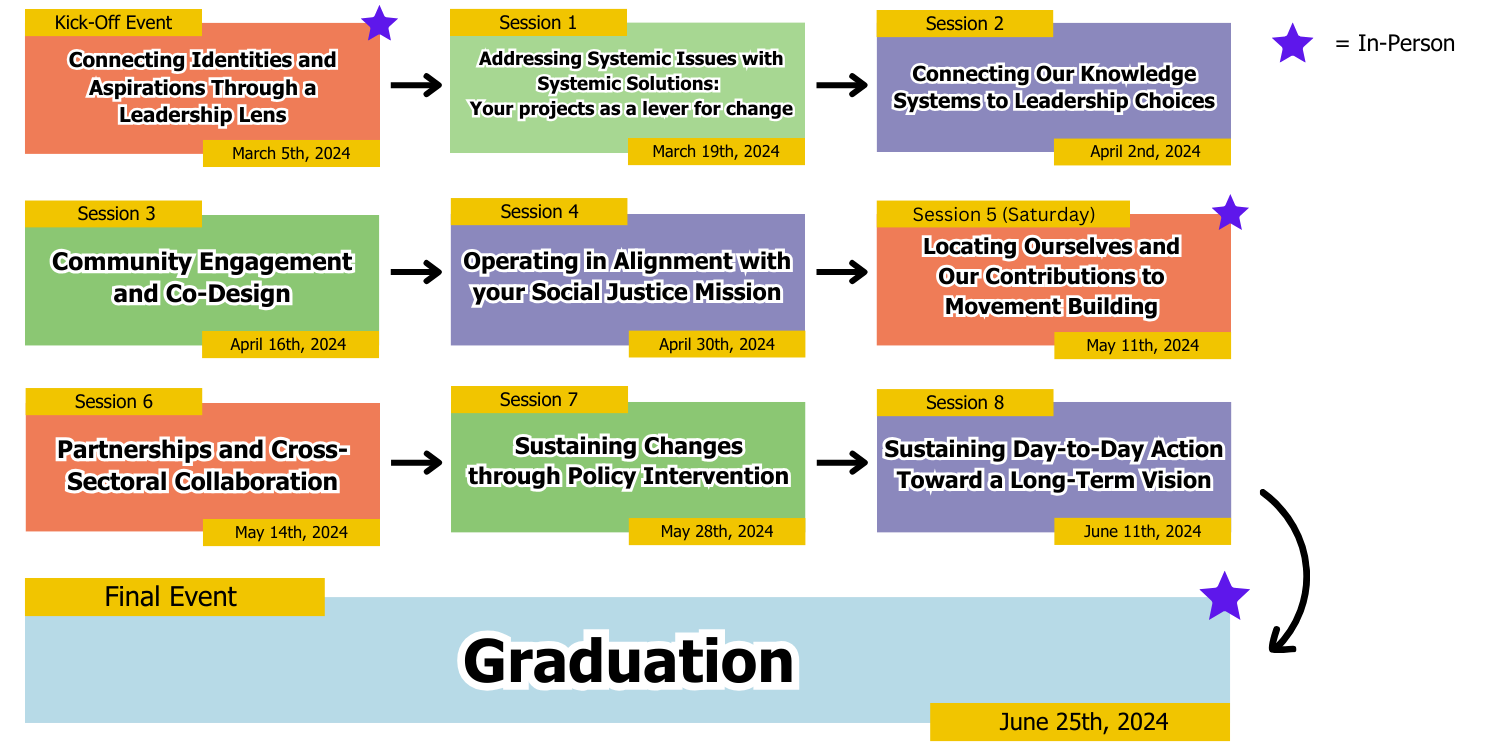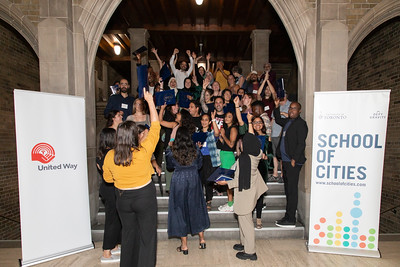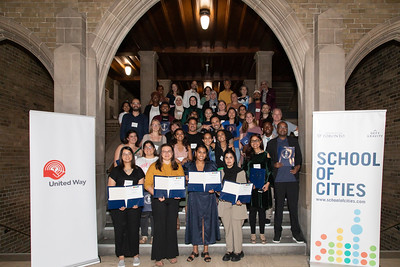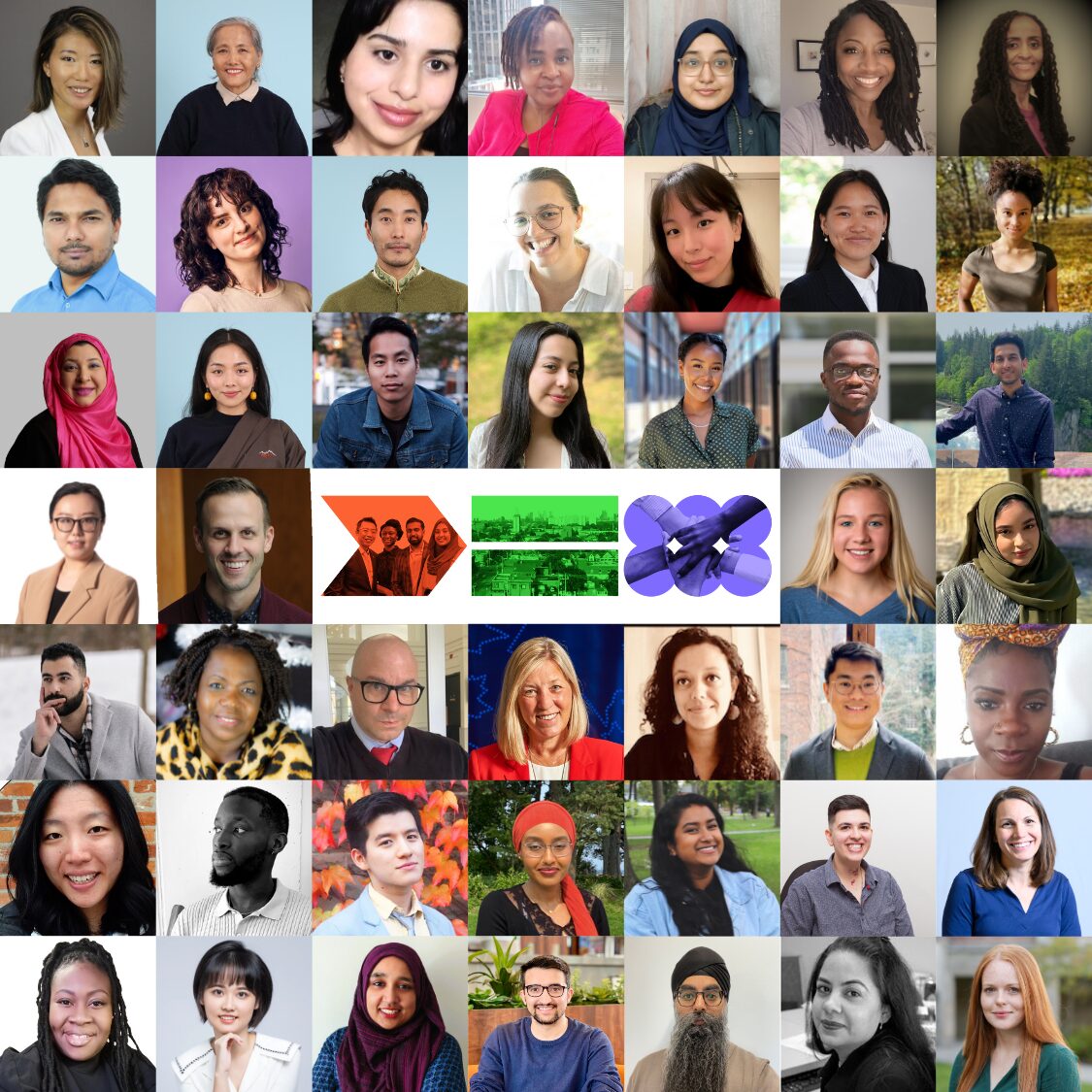The Leading Social Justice Collective (LSJC) is a cross-sectoral leadership development program for individuals engaged in social justice transformation in the Greater Toronto Area (GTA), co-hosted by United Way of Greater Toronto and the School of Cities.

LSJC offers network-building, project support, and leadership development to strengthen participants’ social justice practices and help them make progress on a challenge within their organization or community in the GTA. Embrace your role as a positive change agent, form a team of 3, and join us in 2024!
Helpful links:
“Why now? It is time for collective action to address longstanding, interconnected social, health, housing, and climate justice issues, including Truth and Reconciliation and broader equity and anti-racism imperatives. Now is a rare and unique opportunity to remake our economies, communities, and systems to be more just, inclusive and equitable. Doing so requires leaders in all sectors to act collectively, challenging what we’ve come to accept as normal. Rebuilding requires organizations and communities to equip changemakers with the long-term resources, capacity and agency necessary to initiate and sustain deep change.”
“In an industry that has historically been known for an underrepresentation of women and visible minorities, participating in the Leading Social Justice Collective allowed us to invest in learning about equity, and inclusion, and a chance to brainstorm solutions and have meaningful discussions with like minded individuals interested in different facets of social justice. Participating was an incredible experience, and we continue to use what we’ve learned to move the conversation forward.”
Fatima Saya and Denise Plamenco, Daniels Corporation
What will I get out of the LSJC program?
The LSJC will run from March 5 to June 25 2024. Participants can expect to spend 5-7 hours a week on program activities (see calendar of activities below).
Participants will join a cross-sector network of 150+ alumni who are equipped with tools and practices to create inclusive and equitable organizations and communities. During the program, participants will develop:
- Their ability to initiate cross-sectoral approaches.This includes developing action plans to address the team’s challenge as a starting point for systemic change
- An understanding of how to design for the disparate needs of stakeholders
- Skillsets for creating ecosystem maps of stakeholders and opportunities for change
- Fluency in critical and reflective practice to identify entrenched biases
A U of T and UWGT Leadership Certificate is awarded to participants who successfully complete the program.
What is a potential challenge?
Applicants should apply with a specific challenge in their organization or community that they would like to make progress on through this program. We define social justice as inclusive of economic and environmental justice issues.
- Projects should address an issue in the GTA, including but not limited to housing and homelessness; inclusive employment; climate justice; gender-based violence; reconciliation; systemic racism; food justice; inclusive infrastructure and city-building.
- Projects should use a specific starting point or lever to address systemic inequities.
- This could be a project you are already working on or a project you have just begun that could benefit from new tools, networks and/or skill sets to create your intended change.
- Upon acceptance, teams will work with program staff/coaches to map where the project is currently and to set goals for project progress.
A sample LSJC syllabus

Potential challenges and past project profiles
In the first 3 years of the program applicants could more clearly define a challenge they were addressing in their community. What might a social justice project look like within an organization or industry?
- Incorporate community co-design into your product/service creation
- Build upon projects you have worked on in Employee Resource Groups (ERG)
- Incorporate environmental or community impact in to your business decision making
- Create inclusive recruitment, hiring and promotion practices
- Address practices, policies, and procedures that unintentionally exclude, make inaccessible or negatively impact certain people or groups
These are just a few examples. Are you not sure if your idea or project qualifies or do you need help forming a team of 3? contact us at LSJC@utoronto.ca.
2023 graduation


LSJC projects




LSJC Updates
Receive the latest updates on the Leading Social Justice Collective (LSJC) Program by subscribing to our email alerts. By subscribing, you’ll be only receiving updates related to the LSJC program. For updates from the School of Cities, please use the sign-up form in the footer below.



